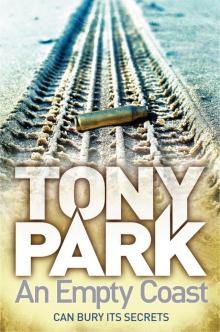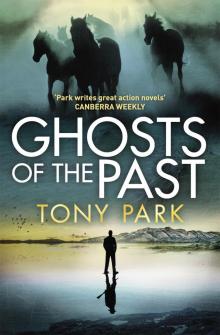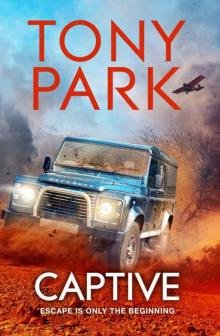Blood Trail Read online
Page 4
Bent at the waist, she jogged to the R44. The doors had been removed from the helicopter to improve visibility and to allow Mike’s passengers to fire rifles at poachers or dart guns at the animals he was often called on to help capture or immobilise for other reasons.
Elizabeth stood and leaned into the cockpit as Mike undid his safety harness and lowered his mouth to meet hers. Already her hand was in his lap, feeling for him. Any thought of responding to the phone message disappeared from his brain.
As he swung towards her she grabbed the lapels of his shirt and half dragged him out as he slid down. She wore black lycra activewear – yoga pants and a singlet top punctuated with those wonderful nipples.
Mike was able to shut down the engine, but she still had to raise her voice over the dying whine. ‘Howzit, my lovely? I must be quick, I’ve got to get to Killarney to keep up the pretence of being the good Christian lady.’
‘You?’ He laughed.
She slapped his face, not hard, but with enough force to send him over the edge. He pulled her to him and kissed her hard.
‘Here,’ she said. ‘Now.’
‘What?’
‘Like I said, I must go. Come.’
‘Yes, ma’am.’
The grass was wet and she nodded to the open rear of the helicopter. He grinned. She backed away from him and shimmied her bottom onto the floor of the cargo area, boosting herself up with her tiptoes on the chopper’s skid. Once in, she kicked off her expensive Nike shoes.
Mike unzipped his shorts as he came to her and grabbed the elasticated waist of her pants. In one motion he pulled them and her G-string off.
‘I’ve been thinking about this since I woke up, even while doing pilates,’ she said, waiting for him to put on some protection.
He moved between her legs, which she then hooked over his hips, drawing him in. It was effortless. ‘I can tell.’
She clung to him as he stood on the skid, their bodies interlaced as he arched his hips, bringing them together.
‘Quickly,’ she whispered, ‘Samantha’s due here any minute.’
‘Maybe she can join us . . .’
She grabbed his bottom and pinched it. ‘Dirty.’
‘OW!’
Elizabeth giggled, but Mike took her breath away as he entered her again. Over her shoulder he glanced at his watch. He was also conscious of the time. Elizabeth met his every thrust, clinging to him, eager to finish. Soon – too soon – they were done.
‘I want to spend a day doing this,’ he said.
‘Me too.’ She jumped lithely down from the open door of the helicopter, with the help of his hands on her waist. They both pulled their pants up just as they heard a vehicle coming up the long driveway behind them. Samantha’s white Amarok pickup came into view.
‘The wine?’
He grinned. ‘All part of the service.’
Samantha drove up to the chopper, stopped, leaving the engine running, and got out. ‘I see I’m just in time for the express delivery.’
Mike reached into the back of the helicopter and took out a box of six bottles of sauvignon blanc.
‘Howzit, Mike,’ Samantha said. ‘You can put them both in my vehicle.’
Samantha kissed Elizabeth on the cheek, and Mike couldn’t help but think of the suggestion he’d made to Elizabeth. Both women were quite a bit older than he, but Elizabeth was crazier than any girl he’d been with. He was, however, on a tight schedule. He unloaded the second box and put them both in the back of the truck, which was already full of bulging plastic shopping bags. Samantha reached in and camouflaged the contraband wine under bags of food.
‘You’re a darl, Mike,’ Samantha said.
‘My pleasure.’
Elizabeth reached into the phone pocket of her yoga pants and took out a wad of hundred-rand notes, which she handed to Mike. ‘For services duly rendered.’
He touched his forelock. ‘My pleasure. Sorry ladies, I have to go.’
Mike climbed up into the pilot’s seat and began a quick check.
‘Are you all right, Liz?’ Samantha asked as the two of them backed away towards the bakkie. ‘Your rosy cheeks make you look like you’ve just done a hard cardio workout.’
Mike was still grinning as the engine spun up and he lifted off from the farm. There were some things happening under COVID that troubled him greatly, but it wasn’t all bad.
Chapter 4
Captain Sannie van Rensburg held the sobbing woman to her chest and let the grandmother’s tears soak her uniform shirt. It took all the strength she had left in her not to join the woman and let her own grief spill out.
Sannie wore her face mask and should not have been holding the woman, but her innate sense of compassion won out over regulations.
Around them, in the unpaved road that ran through the middle of the village, a mix of women, children and a few men crowded her, the arrival of the police causing a commotion and a distraction from day-to-day life. A few wore masks, but social distancing was almost impossible to enforce in tight-knit communities such as Killarney. Even a hobbled cow looked up from the banana peel it had been sniffing on the roadside. Sannie was acutely aware how quickly such crowds could go from curious to angry.
Sannie sighed into her face covering. Her job was the only thing, other than her children, that was keeping her functioning. ‘We are here to help,’ she said into the woman’s hair.
Nomvula took a deep breath and nodded. She broke from Sannie and brushed her hands down the front of her dress. She set off away from the crowd, which was losing interest as fast as it had gathered, and Sannie followed. Parents sat on plastic chairs outside their homes, fanning themselves as they contemplated the goings-on. The village was a mix of the new and traditional; single-storey brick homes with tin roofs and circular thatched huts with brown walls made of mud brick. Interspersed were half-finished builds, owned by local people who had been forced to go to Johannesburg or further afield to find work and who then constructed their family home one room, one window frame, at a time as they made their money. Too many of these absentee residents were now out of work and there was no building going on right now. Children darted through the backyards of houses, not-so-secretly following their progress. Nomvula yelled at the small ones in Xitsonga, telling them to go to their homes. The children obviously respected, perhaps feared, the old gogo.
Nomvula took Sannie off the main dirt road down a pathway lined with upended green Castle Lite beer bottles, an example of putting litter to better use. What had once been a hectare or so of vacant land on the edge of the settlement, cleared of most of its trees and used as a dumping ground, was now a fledgling community project, indicated by a sign that said ‘Sustain – Non-Profit Organisation’. It was hot already, the sun beating down on red dirt and young trees, newly planted but struggling to grow. The village children were supposed to be watering them, part of their environmental studies, and despite the kids’ best efforts some of the leaves were wilting and dried; in Killarney, the water supply was intermittent – watering plants was a luxury when there wasn’t enough for humans. Hope had been nurtured here, but now it was struggling.
‘I’m so sorry,’ Sannie said, trying to build rapport. ‘I can only imagine how you must feel.’
‘What do you know of my pain?’ Nomvula Ndlovu said as they walked, just a few curious youngsters in tow now.
It wasn’t said in anger, more in frustration at the perceived lack of a speedy response by the police, and the woman could not know how Sannie had suffered, but the words stung her nonetheless.
She wanted to scream, The man I love has been taken from me, killed! And if you want to know if I understand your pain, the answer is yes, because this was the second time it happened to me.
Nomvula stopped and looked up into Sannie’s eyes. ‘You do know.’
Sannie blinked, still fight
ing back her own tears. ‘About loss?’
Nomvula nodded.
‘Yes,’ Sannie said quietly. ‘Everyone in this country knows about that. I am here to help you.’
Nomvula wiped her eyes. ‘My granddaughter, she is gone.’
Sannie took off her mask and put it in her pocket. ‘Yes. Tell me everything, please. Let’s sit under that tree. Start from the beginning: what she was doing, and where you last saw her. Come.’
They were still within sight of the road and Sannie saw that the earlier crowd had reconvened, its attention now drawn to the arrival of a white Volkswagen Amarok bakkie, which pulled up about fifty metres from Sannie and Nomvula. The people who had been clustered around Nomvula, vociferously sharing her outrage and grief, now had other priorities; they formed themselves into a more or less orderly queue that ended at the tailgate of the big pickup truck.
Sannie thought she recognised the vehicle and her suspicion was confirmed as her two friends, Elizabeth and Samantha, got out. Both were dressed in activewear, having just done their morning online pilates class with their instructor, Taryn, which Sannie did not catch often enough. Both were toned and, despite their misfortunes, still had enough income or savings to keep themselves well-groomed like the rich men’s wives they’d both been until recently. So much of life in South Africa, Sannie mused, was about keeping up appearances. Elizabeth, blonde and blue-eyed like Sannie, spotted her and waved.
‘You know them?’ Nomvula said. Samantha, unlike her Afrikaner friend, was of Greek descent, with smooth olive skin and lustrous black hair. She had already opened the tailgate and begun handing out shopping bags to the waiting people, who filed past. Samantha was the more organised of the two and it was she, Sannie knew, who had arranged the food relief program.
‘Yes.’
‘They bring food to us, every few days,’ Nomvula said. ‘They are good people.’
Sannie saw the look in Nomvula’s red eyes. As consumed as she was with the need to find her granddaughter, Nomvula also needed to eat. Unemployment had been rife in Killarney even before the pandemic hit, and just trying to make ends meet was a fulltime occupation. Even those with jobs barely scraped by.
‘Come,’ Sannie said. ‘We’ll get your share, then you can show me where Lilly disappeared.’
They walked to the truck. ‘Howzit, Sannie,’ Elizabeth said as she, too, began handing out bags that Sannie could now see were filled with maize meal, vegetables, cooking oil, sugar and long-life milk. ‘I hope you feel better than I do after last night.’
In truth, she still felt a little queasy. ‘Fine, Elizabeth. Can we maybe sort Nomvula out with a bag? She and I have business.’
‘Hundred per cent.’ Elizabeth selected a bag and passed it over.
‘Shame, Sannie,’ Samantha said, not breaking her rhythm of dispensing the COVID aid parcels. ‘Is this the lady whose little girl has gone missing?’
‘I am,’ Nomvula said, taking the bag from Elizabeth, ‘it’s my granddaughter, and thank you.’
Samantha stopped her work to come around the bakkie, ignoring the scowl of the man who was next in line, and put a hand on Nomvula’s arm. ‘We’re all praying for you, and for the girl.’
‘You heard about this already?’ Sannie asked.
Elizabeth nodded as she handed the man a bag. ‘Ja. We’ve been here in Killarney quite often, so we pick up the local gossip; we had permission to travel all through lockdown.’
‘It’s good of you to be doing this,’ Sannie said. Samantha had run a thriving business before the virus, but from what Sannie knew of Elizabeth, her idea of hard work was Parkrun on Saturday mornings. Sannie had got to know the other women through a book club at Hippo Rock. Samantha lived on the estate, but Elizabeth and her husband had previously had enough money to keep a house there for weekends and holidays, even though they had lived only forty kilometres away. Sannie wasn’t sure how Elizabeth was doing, financially, as a result of Piet leaving her.
Samantha shrugged. ‘Yes, well, we both feel some responsibility. Many of the people in Killarney had been hoping for jobs at the hotel, and Piet and Elizabeth’s company had been employing a few locals during construction. Those jobs all went as well.’
Nomvula nodded her head slowly, confirming what they all knew. Samantha was the head of the Hazyview Tourism Association and she and her husband John had been devastated by the coronavirus lockdown and suspension of international and domestic tourism. Sannie knew they had overextended with the bank to finance construction of a new boutique hotel on an old citrus farm very near to where they now stood.
The development was going to be a boon for Killarney, and not just through the promise of jobs. As part of gaining approval for a lease on the land from the local chief and community, John had started building a new and expanded school and major infrastructure works to prepare for a second stage of development, an upmarket housing estate in a future wildlife estate, much like Hippo Rock, with animals roaming between the houses. The long-term plan was that the old citrus farm would be incorporated into the Sabi Sand Game Reserve and adjoining greater Kruger National Park. Now Piet, Elizabeth’s husband, had shut down the construction and infrastructure development work, mothballing everything and then running away.
‘It is hard for all of us,’ Nomvula said to Samantha.
Samantha swallowed and blinked a couple of times before turning back to her work.
As usual, Elizabeth was putting on a brave face. ‘Might need a loop dop later, hey, Sannie?’ Elizabeth whispered.
Sannie gave a small shake of her head. The thought of another drink, ‘one for the road’ as Elizabeth had suggested, turned her stomach even more, and she had serious work to do. They said their goodbyes and Sannie and Nomvula left the women to their charitable work.
Nomvula led Sannie to a mahogany tree. They each sat on old kitchen chairs on the raked dirt.
‘When she didn’t come home, I called the police, but they did nothing.’ The woman took a handkerchief out of her bra and mopped her face.
‘I understand,’ Sannie said, taking a notebook from the side pocket of her cargo pants. ‘I have come to say sorry for that, and to listen to you. Now, tell me, from the start, what happened.’
Nomvula sighed. ‘I have a job in Hazyview, where I work at the Pick n Pay. I am lucky that the supermarkets are considered essential – so many people here have lost their jobs. On Thursday I left early, as I always do, at six in the morning. My granddaughter Lilly left at the same time to go to visit one of her friends. With the schools closed because of the virus, Lilly and her friend help each other with their homeschooling. Lilly spent the day with her friend and the girl’s gogo.’
‘Is it mostly the grandmothers who care for the children here?’
Nomvula nodded. ‘Often, yes. Most of the mothers are away working. My daughter, Sibongile, Lilly’s mother, died three years ago. She was very sick with tuberculosis.’
‘I am sorry for your loss.’ Sannie wondered if Sibongile had been HIV positive as well. Often it was TB that caused death for people whose immune systems were low.
‘Does Lilly ever miss school?’
Nomvula shook her head, emphatically. ‘No, she is a good girl. Some of the children, ai, they grow up with not enough supervision and they get into trouble, but not my Lilly. She even has an award from the teacher for her attendance. I can go to my house and find it for you, show it to you so you can see and . . .’
Sannie reached out and put a hand on Nomvula’s shoulder as her body heaved beneath her touch, the fear threatening to overwhelm her. Sannie could not imagine how she would feel if one of her children went missing, but Nomvula seemed to be fearing the worst already. ‘How about Lilly’s father?’
Nomvula gave a flick of her head. ‘He works in a mine in North West province. I have left a message for him on his cell phone, but that one, he is no good. He
has not seen Lilly for nearly eight years now.’
Which meant, Sannie calculated, that he’d left when Lilly was just five years old. This did not sound like a case of a parent kidnapping his own child.
‘There was another girl taken, you know?’ Nomvula added.
‘No. When?’
‘Two weeks ago, but the police were not interested in her, either.’
Two girls, Sannie wrote in her notebook. ‘I will need her name. Tell me, why do you think the police were not interested in these disappearances?’
Nomvula looked over her shoulder, as if there might be someone eavesdropping. ‘The other girl was Thandi Mnisi. She was different from Lilly. Thandi was only Lilly’s age, maybe a little older, fourteen perhaps, but she was wise beyond her years. She had been in some trouble, with drugs, alcohol, boys.’
‘Do you think both girls might have been abducted?’
Nomvula nodded. ‘Yes, I think so – now.’
‘Now?’
Nomvula glanced at the crowd, some of whom were drifting away now that the initial excitement was over. ‘At the time Thandi went missing, well, many of us dismissed the reports, you know? We thought, “Ah, Thandi, she has just run off with some boy, or maybe gone to Joburg, or, God forbid, to one of the shebeens to work”.’
Sannie shuddered. The thought of a girl just turned thirteen or fourteen going to work as a prostitute in a bar was as repugnant as it was illegal, yet in the poverty-stricken communities of South Africa it was not inconceivable.
‘Who reported Thandi missing. Her mother?’
‘No, Thandi’s mother has passed and her father is somewhere else. Her friend, Sonto, made the report. I feel bad now. Maybe I, too, was too quick to judge Thandi and Sonto. They are alike.’
‘This Sonto, is she still here?’
‘Somewhere, yes. I can’t see her now, but she is not far. I saw her before you arrived. Perhaps . . .’

 The Cull
The Cull Blood Trail
Blood Trail Red Earth
Red Earth An Empty Coast
An Empty Coast Dark Heart
Dark Heart African Sky
African Sky The Delta
The Delta Captive
Captive Ivory
Ivory Ghosts of the Past
Ghosts of the Past Captive_A High-octane And Gripping African Thriller
Captive_A High-octane And Gripping African Thriller Zambezi
Zambezi Silent Predator
Silent Predator Far Horizon
Far Horizon African Dawn
African Dawn The Prey
The Prey Safari
Safari